Red Onion Benefits are among the most popular vegetables worldwide. When most children dislike their pungent and bity flavor, most adults embrace and use them regularly. Red Onion Benefits contain twice as many anti-oxidants as any other sort of onion making them a powerful part of an anti-inflammatory diet and lifestyle. This guide will go over 10 advantages of red onions and also how to use these to find the best results.
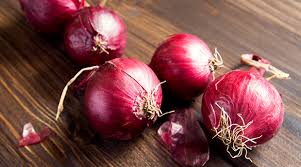
Red onions get their bite from the many sulfur groups they contain. These sulfur classes include the diallyl sulfides: DMS, DDS, DTS & DTTS. These sulfur classes help create cysteine inside the body that assists in weight loss, detoxification and cancer prevention. Additional studies have shown that sulfur compounds have a strong anti-oxidant ability that inhibits blood cell clumping.
They are associated with enhancing cell membrane function in red blood cells and enhancing oxygen utilization. This enhances cardiovascular function in addition to fat metabolism.
Rich at Anti-Oxidant PhytoNutrients
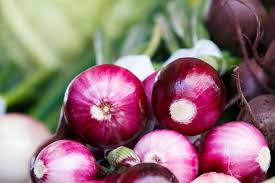
Red Onion Benefits are also a rich source of the flavonoid anti-oxidant quercetin and the polyphenol anti-oxidant anthocyanin.
These anti-oxidants stop the oxidation of dietary and cellular fatty acids. They are very powerful free radical scavengers that neutralize cancer cell growth and radically reduce whole body inflammation
Many consider that consuming quercetin from onions is more powerful than taking quercetin extracts in supplement form. The body can better comprehend the nutrient as it’s in a natural form and has other synergistic components associated with it.
Red Onions are Rich in Chromium:
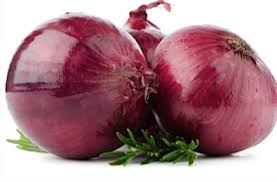
Red onions are also a fantastic source of chromium that lowers blood sugar and improves cellular insulin sensitivity. Almost 50% of the US population is deficient in chromium that’s greater than every other developed nation.
This is due to over cropping that has stripped the land of chromium and processed food intake. Chromium deficiencies lead to diabetes and cardiovascular disease.
The anti-oxidant are extremely rich from the outer layers of this onion. Many folks will peel off the first few layers and shed much of these critical nutrients. Make sure you use the outer, fleshy edible parts as far as you can. Overpeeling, by simply taking off the outer 2 layers of flesh will probably cost one about 20 percent of its quercetin and over 75% of its anthocyanins.
Simmering onions in a soup or broth will damage a few of the anthocyanins but maybe not the quercetin. The quercetin moves to the broth or soup. The lower the heat the more nutrients will be in the soup or soup.
Studies have shown that 4-7 portions of red onions per week (equivalent to approximately 2-3 onions) has been associated with the best benefit in reducing esophageal, oral, laryngeal, esophageal & ovarian cancer.
Red onions should be kept in a cool, dry area with good venting. Until they’re opened they should not be stored in a fridge or plastic bag because both of them are proven to accelerate spoilage. Once opened, it’s best to store . Steer clear of any onions which are wet, soft, bruised or have dark spots or mould on them.
Frequently Asked Questions With Onions:

Do I Need to Purchase Organic Onions?
Because onions are coated in a thin skin and are very sharp and pungent they repel fleas. They are not highly coated with toxic pesticides and insecticides and consequently may be bought non-organic without significant danger of toxic chemical exposure.
How Do I Reduce the Effect Onions Have on My Breath?
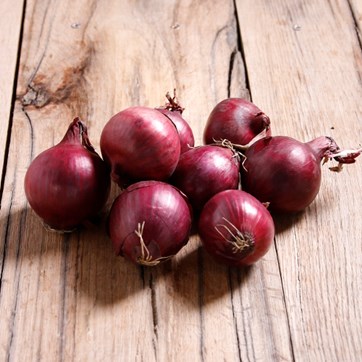
You can decrease the unwanted consequences onions and other sulfur rich foods (garlic, shallots, radishes) have in your breath by consuming green vegetables, bitter herbs like dandelion, parsley or cilantro and herbs like rosemary, fennel and peppermint.
I often advise my customers to consume parsley or create a green drink on days when you are consuming a great deal of raw onion.
Do I Get the Very Same Benefits from Cooked Onions as I Do with Deadly Onions?
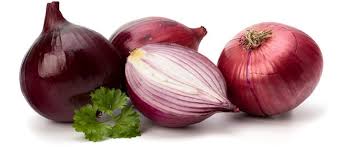
No, you will certainly lose a lot of the nutrient content but you will still get some of the benefits so that it is better to eat cooked onions than no onions at all.
Do I Get the Same Benefits from Cooked Onions as I Do with Raw Onions?
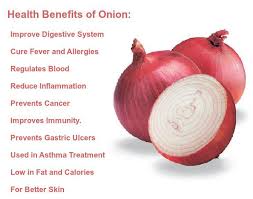
Onions have very healthful polyphenols (quercetin) that help to improve the make up of our intestine microflora. For most individuals, they are extremely great for the intestine microbiome.
Howeverthey also contain fructan sugars which are part of their FODMAP group. Some people with small intestinal bacterial overgrowth (SIBO) and other digestive issues can fight to digest these sugars. This may result in gas and bloating.
If you notice gas, bloating, cramping when consuming onions than simply take them from your diet and follow a low FODMAP diet for a time period as you work to cure your gut.
Do Vidalia Onions and White Onions Have the Very Same Benefits as Red Onions?
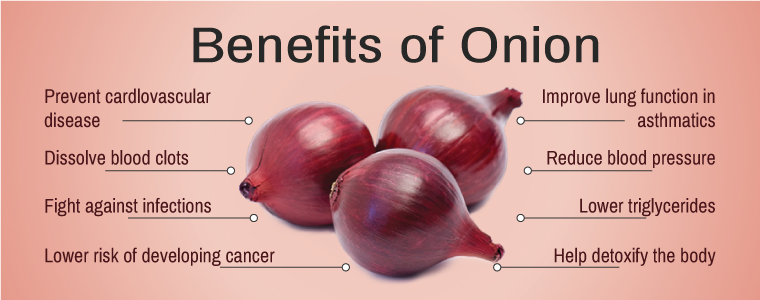
The vidalia and white onions are very healthy as they do contain the sulfur compounds, quercetin and chromium. But, red onions are the sole onions which have anthocyanins and so they are more nutrient dense than any other form of onion.
Comments
0 comments
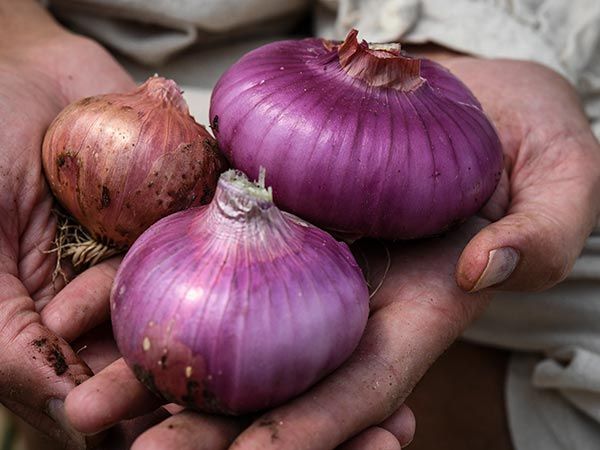
Leave a Reply